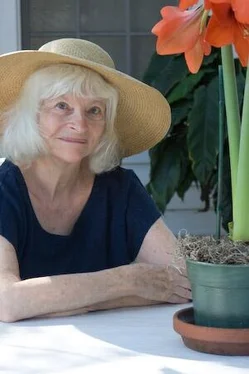“He gets all his clothes that way,” Josie explained. “That’s how come he looks so Ivy League.” Paul glanced again at the mass of crumpled material on the floor. “Yeah, he goes up to Saks or Bullocks or somewhere and he takes like a new tweed jacket and puts it on and then he hangs his old jacket back on the hanger and just walks out. If anybody stops him he just makes like the absent-minded philosopher. Maybe he’s got some heavy book with him and he’s reading it all the time, you know. Okay, baby. Here you are.” She spooned pancake and jam into Psyche, who was sitting on her lap, her mouth open, like a plump, pink bird. “I tried that a couple of times, only it’s a lot harder for a woman on account of women’s clothes aren’t all the same. When you go in with a blue dress on and come out with a red one the salesgirl is liable to tumble.” She grinned at Paul. He could not help smiling back at this friendly, ingenuous criminality.
“Walter’s the most,” Steve said. “How about how he lifted all the dishes and stuff for John’s pad!” He looked at his wife and Ceci for confirmation, but he also looked at Paul, as if to say, Are you as much as Walter. “John was staying here for a while,” he explained, “but then he found this great new pad. He wanted to give a big house-warming party. Alice was cooking a ham and all, only they didn’t have any dishes. So they all went over to the More Store, and John picked out some great Japanese stuff, all black and white. Then Walter got into the cupboard under the counter and found a big carton with Japanese writing on it, and began loading the stuff in. He was practically finished when this salesgirl chick came over and asked what he was doing. Walter looked at her completely blank, like he didn’t understand one word, very Oriental, and went on packing. That stopped her for a bit, but pretty soon she began to say, like, Stop that, or I’ll call the manager. So then Walter began to talk to her very fast, in Chinese and English all mixed up, like, Dishee no good, all no good for white peoples, makee velly sick, poison. And all the time he was shutting up the box and walking towards the back door. The chick just stood there, stunned; but then she started looking for the boss, but John and Alice came up and sort of surrounded her and began asking a whole lot of dumb questions about the stuff on the counters, and Walter walked out the back door looking like a delivery boy and nobody stopped him.”
Steve glanced at Paul. All right, he seemed to be asking, have you ever done anything that can stack up to that? Thank Christ, no, Paul wanted to say. But Josie and Ceci were watching too, laughing and waiting for him to laugh. So he laughed, and said, “Where was all this, right around here?”
“Oh hell, no,” Steve exclaimed. “It was at the More Store, over in Mar Vista.”
“Walter wouldn’t boost anything from around here,” Josie explained. “I mean like down here he knows everybody. He wouldn’t shuck them here.”
“Hi, Mommy! Hi, Daddy! Hi, Ceci! We went wading. Starry said we could.” The door banged open, there was a rush of children into the room. Two, four, five, six—they couldn’t all be the Tylers’; in fact, Paul noticed, one of them was colored. Some ran round in circles, other flung themselves on Steve and Josie. “I’m hungry!” they cried. “Who’s that man? Can we have some pancakes too?”
“Sure,” Josie said. “Just let me up. Wow, you’re all wet! Take off your wet clothes, everybody. Starry, help Ezra get his jeans off. This is Paul, kids. He’s a friend of Ceci’s.” She stood up from under a heap of children. “Okay, beat it out of the kitchen.”
“And cool it, everybody,” Steve said. “Turn down the volume.”
Surprisingly, considering how casually their parents had spoken, the children stopped shouting and clamoring. They poured back into the front part of the room and began to take off their clothes. Then, as Steve, Ceci, and Paul left the table, they crowded up to it and took their places, quite unconcernedly naked or half-naked. But then, everybody in the room except Paul was partly naked; Steven with his bare brown chest and back, Josie in her skimpy shirt, Ceci who no longer troubled to conceal the gaping hole in her jersey. But it wasn’t exhibitionistic: it was just natural and careless. What was this thing he was wearing anyway, Paul thought, this anachronism called a “suit,” with its flaps and pads and buttons that did not button? Why was he all wrapped up in these layers of cloth? There was nothing wrong with his body. No wonder Steve looked at him suspiciously. It’s because I have to go back to work, he wanted to explain to them.
“We better split,” Ceci said to Josie. “Thanks for breakfast.”
“Yeah, it was great,” Paul said. “You’re all great,” he suddenly added, and thought, at once, What a dumb thing to say. But Josie broke into a delighted smile, and even Steve looked more friendly.
“Make it over again soon,” Josie said. “I’m sorry Walter never woke up. You should meet him.” They all looked over at the corner. The heap of clothes still lay there on the floor. Maybe he’s dead, Paul thought. But no, it moved faintly, regularly.
“That’s all right,” Ceci said. “We can wait.”
10
IT WAS NOON ON New Years Day. Katherine was getting ready to go to the beach with Paul. She did not want to go to the beach very much, or really at all. In the first place, it was the middle of the winter. Back East people were putting on their boots and shoveling snow, but Los Angeles was suddenly having a heat wave. Though it was hot out, and the sun was shining hard, the water would certainly be freezing. Paul wanted her to see what it was like, he kept saying. He had seemed very surprised when she agreed to go today, but she had decided she might as well get it over with. Once she had gone to the beach, Paul would stop talking about it. And the disagreeable man she was working for up at U.C.L.A. would stop teasing and persecuting her about how she had been living in Los Angeles for three months and never gone in the Pacific Ocean.
This man was one of the most disagreeable people Katherine had ever met. Luckily, the two other professors working on the grant with him were quite pleasant. They were reasonable, predictable, and considerate of her. Dr. Smith was a large, rather stout professor of experimental psychology from Illinois; Dr. Haraki was a small, rather plump professor of sociology from Berkeley. They came to work on time, read their fair share of the relevant previously published material, and dictated sensible reports on it to Katherine. They paid serious attention to planning the project: A Preliminary Study of Some Relationships Between Perception and Delinquency was its official title.
Katherine preferred working in the humanities, but unfortunately that wasn’t where the grants usually were. She had had employers she liked better; still, Dr. Smith and Dr. Haraki were all right. Only Dr. Einsam was impossible.
In the first place, he wasn’t even a professor at U.C.L.A.; he just had some sort of temporary research appointment. He was really a psychiatrist, with an office over in Beverly Hills. Although Katherine had never met a psychiatrist before, either socially or as a patient, Dr. Einsam exemplified her prejudices against the profession. He was lazy, untrustworthy, and opinionated. He came late to meetings, having read different articles and prepared different outlines from those he had promised to read and prepare, or none at all; and in discussions he kept introducing topics that had little or no connection with the project. He thought he knew everything. He ridiculed and contradicted his colleagues to their faces, and they did not object, out of good nature, or out of fear. And he ridiculed Katherine. He asked her personal questions, or made personal remarks, in front of everyone. Last week he told her that he liked the shoes she had on better than the ones she was wearing to work before, because they were more feminine; didn’t Bert and Charlie agree that these shoes were more feminine? So then they all looked at Katherine’s feet. Dr. Smith said that he had never noticed the other shoes; Dr. Haraki, who was really very sweet, said that he had never thought any of Mrs. Cattleman’s shoes were masculine. No, not masculine, Dr. Einsam said. Neuter.
Читать дальше












